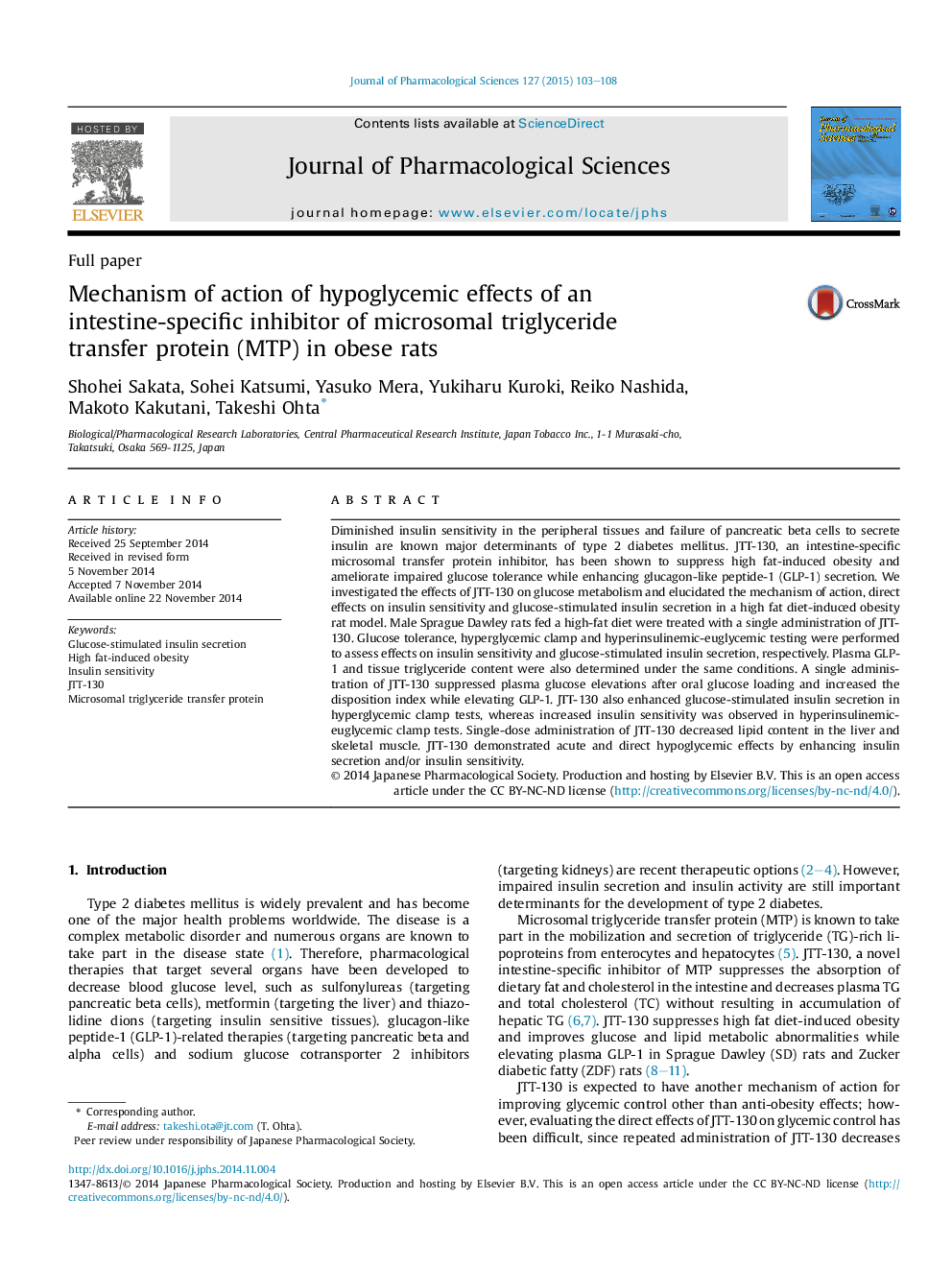| Article ID | Journal | Published Year | Pages | File Type |
|---|---|---|---|---|
| 2548825 | Journal of Pharmacological Sciences | 2015 | 6 Pages |
Diminished insulin sensitivity in the peripheral tissues and failure of pancreatic beta cells to secrete insulin are known major determinants of type 2 diabetes mellitus. JTT-130, an intestine-specific microsomal transfer protein inhibitor, has been shown to suppress high fat-induced obesity and ameliorate impaired glucose tolerance while enhancing glucagon-like peptide-1 (GLP-1) secretion. We investigated the effects of JTT-130 on glucose metabolism and elucidated the mechanism of action, direct effects on insulin sensitivity and glucose-stimulated insulin secretion in a high fat diet-induced obesity rat model. Male Sprague Dawley rats fed a high-fat diet were treated with a single administration of JTT-130. Glucose tolerance, hyperglycemic clamp and hyperinsulinemic-euglycemic testing were performed to assess effects on insulin sensitivity and glucose-stimulated insulin secretion, respectively. Plasma GLP-1 and tissue triglyceride content were also determined under the same conditions. A single administration of JTT-130 suppressed plasma glucose elevations after oral glucose loading and increased the disposition index while elevating GLP-1. JTT-130 also enhanced glucose-stimulated insulin secretion in hyperglycemic clamp tests, whereas increased insulin sensitivity was observed in hyperinsulinemic-euglycemic clamp tests. Single-dose administration of JTT-130 decreased lipid content in the liver and skeletal muscle. JTT-130 demonstrated acute and direct hypoglycemic effects by enhancing insulin secretion and/or insulin sensitivity.
